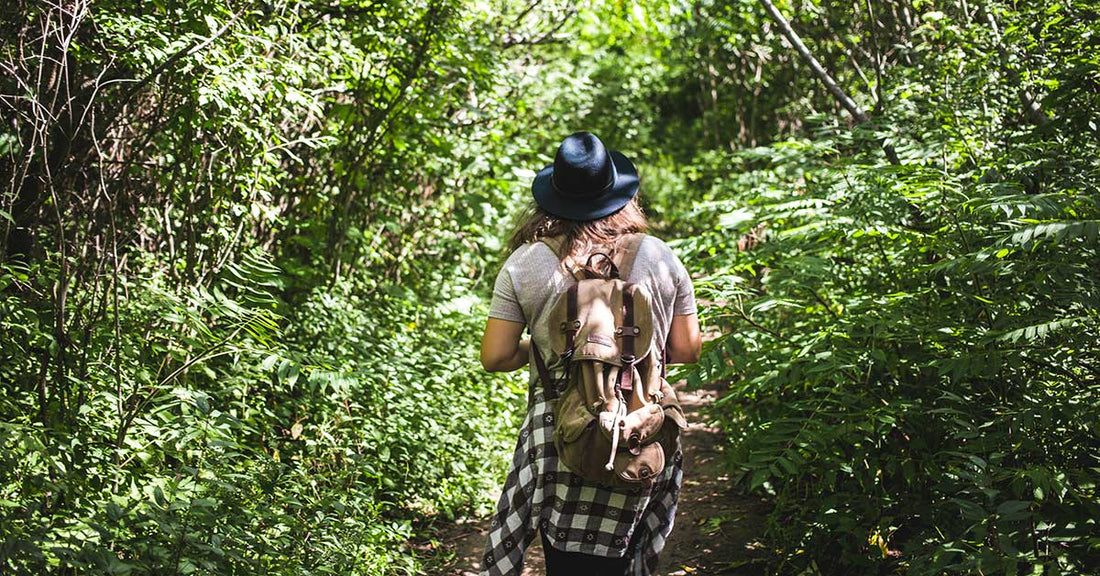We are truly lucky to have this green and blue jewel of a planet we call home. Earth is unlike any other discovered thus far. Currently the only planet found to sustain life, this tiny rock orbiting Sol is the single most precious resource to be found for light years.
Just like our bodies require their cumulative parts working together in harmony to flourish, Earth requires that all it sustains to work as a cohesive unit. When the life on the planet becomes unbalanced, the natural flow and energy of the planet also becomes unbalanced.
Fortunately, there is quite a bit essential oil users can do to help preserve the crops that supply our aromatic gifts and in turn contribute to supporting the planet.
- CHOOSE THE APPROPRIATE HEALING MODALITY. Essential oils are not the answer to all health problems. Before using aromatics, first make sure that another therapy is not a more appropriate choice. Herbs, massage, reflexology, Chinese medicine, and other options may be better in many cases. Aromatherapy may be able to serve a supportive role alongside these other modalities as well. Often, waste is reduced when it serves as a complement to care.
- USE ESSENTIAL OILS HOLISTICALLY. Frequently today, people reach for essential oils as a first line of defense, and they are also often used in a similar manner to over-the-counter medications. Using essential oils this way rather than as a support to the body’s natural healing process uses up more oil more quickly. Aromatic medicine techniques in particular use up quite a bit of aromatics. Unless these methods are truly needed (and one is under the qualified guidance), both the planet and the body are done a favor when holism is the focus of a healing approach.
- EMBRACE COMPANY PRODUCT OFFERINGS AND DO NOT DIY EVERYTHING. Increasingly, people are coming to understand that more goes into product development than the average person can safely handle in the home. A lot of essential oil ends up being wasted in incorrectly made DIY projects. To avoid contributing to waste, stick with only home-appropriate DIY aromatherapy products (rollers, blends, personal inhalers, etc.), and purchase professionally made aromatherapy cosmetics from reputable suppliers. To assist with this, we offer carefully crafted options for aromatherapy, body care, and the home.
- SUPPORT AND ENGAGE IN ENVIRONMENTAL EFFORTS. There is more available today than ever to help support positive environmental impacts. From technology to reduce individuals’ carbon footprints to efforts to help preserve forests and replant where modern living has torn down natural resources, there is a lot to choose from to help give the planet the love it needs. Healingscents has chosen to partner with Eden Reforestation Projects, which aims to provide jobs by allowing people to “grow, plant, and guard” forest species. This is a very special effort as it serves to support both the planet and those living on it who are in the greatest need of a job.
- BE CONSCIOUS ABOUT WHAT ESSENTIAL OILS ARE PURCHASED. Always purchase only what is needed. There is a tendency today among many people to want to hoard essential oils. Since essential oils do have shelf lives (some very short—like citrus oils), it is best to be conscious about purchases rather than getting a large stock that sits and is never used before expiration dates hit. Conservation status is also important to be aware of. The IUCN Red List is a useful tool for checking on the conservation status of various plant species.
ESSENTIAL OILS TO USE PRUDENTLY
Spikenard
IUCN Red List status: critically endangered
Often used for its sedative and emotionally supportive qualities, the spikenard population is currently at a great risk of extinction with very little in the way of conservation actions in place to protect it. This is an excellent example of an essential oil to replace with other suitable options.
Try instead: vetiver, valerian, or sweet marjoram
Rosewood
IUCN Red List status: endangered
Probably the most well-known of endangered aromatic plants in the essential oil community, Rosewood has been endangered for years. The essential oil is frequently (and rightly) recommended as one to find an alternative to in order to protect the declining population of trees through the reduction of demand. If one does purchase rosewood oil, it is best to make sure that the supplier’s sourcing practices are legal and ethical since questionable trade does take place.
Try instead: ho Wood (linalool type), buddha wood, or other essential oils with high concentrations of linalool.
Atlas Cedarwood
IUCN Red List status: endangered
Atlas cedarwood is sought out for its sedative, anxiolytic, and respiratory benefit. But this popular and well-loved oil is quickly disappearing. There are some conservation actions in place to help protect the species luckily.
Try instead: Himalayan cedarwood or Virigina cedarwood
Sandalwood:
IUCN Red List status: vulnerable
Santalum album is famous for its richly deep, woody aroma. Deeply meditative, the comforting aroma is a popular choice for aromatherapy and perfumery, and it is also found in incense. Unfortunately, this species has seen some hard times over the years.
Try instead: patchouli or Roman chamomile
Frankincense:
IUCN Red List status: near threatened
Meditative, helpful with discomfort, and a gentle respiratory support oil, frankincense is at risk of becoming endangered if harvesting practices and demand for this precious oil do not change. The trees take a long time to reach the needed maturity for the harvest of their tears, so it takes a while to recover when overharvested.
Try instead: Australian sandalwood< or Scotch pine


